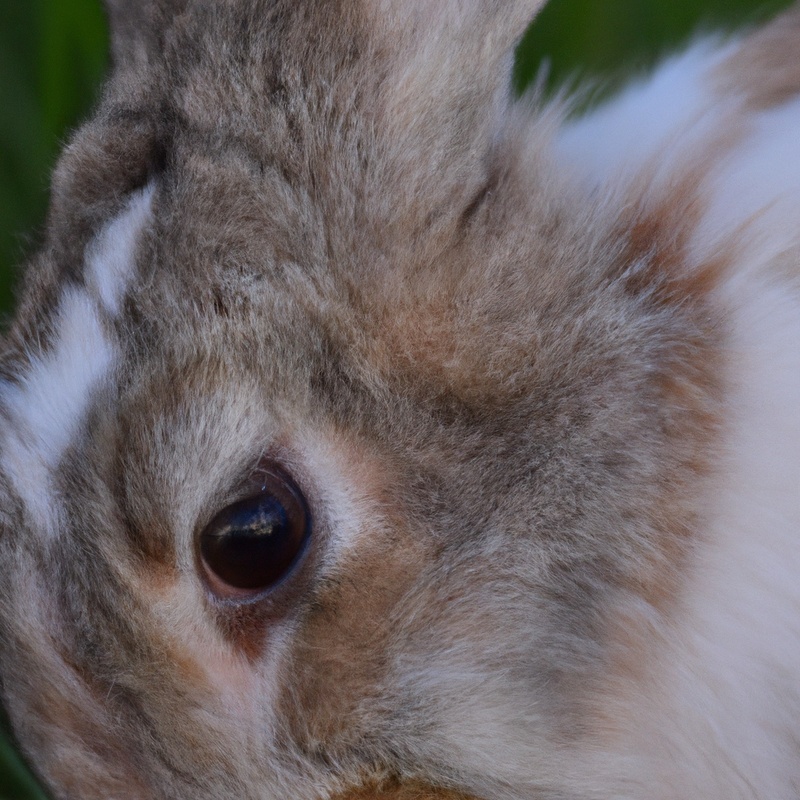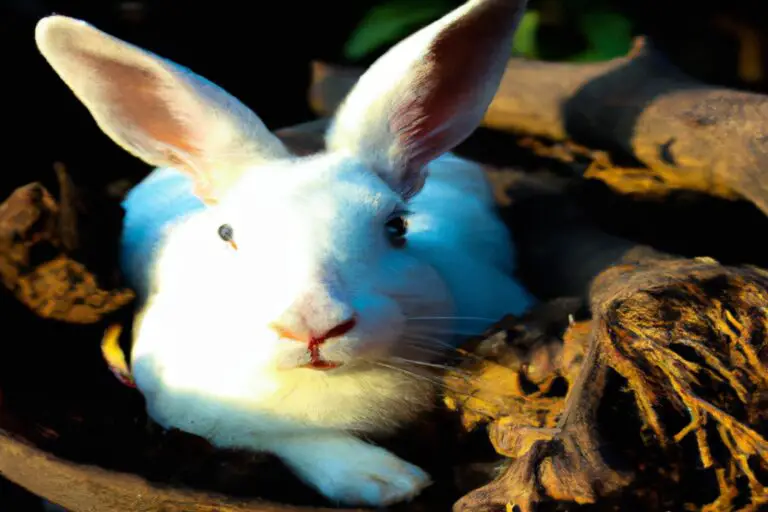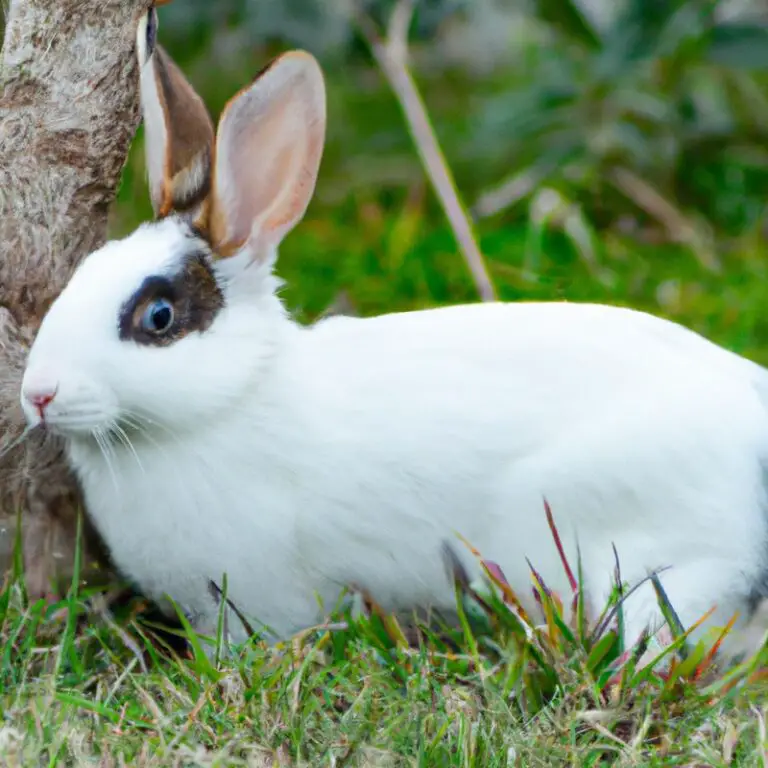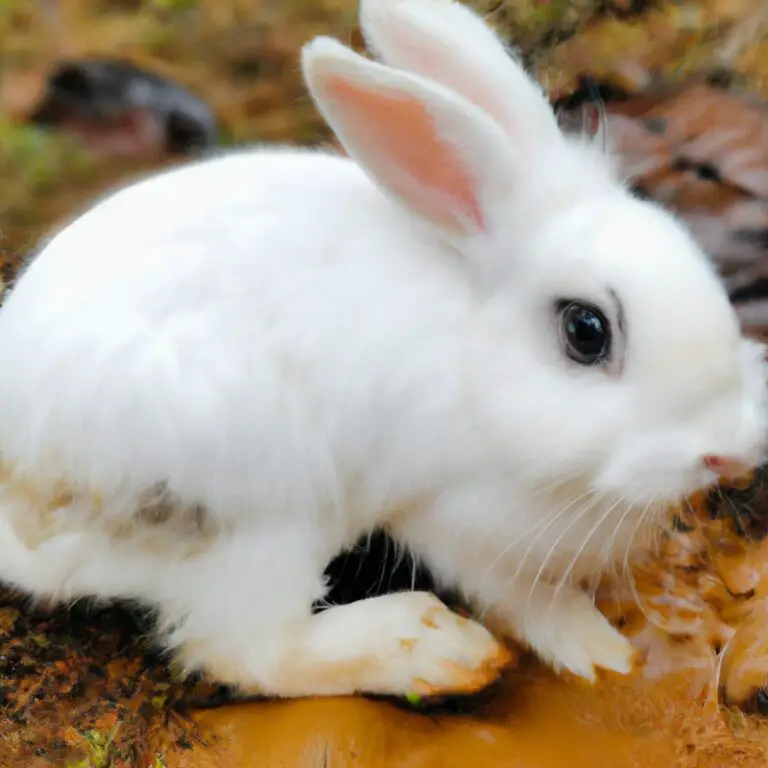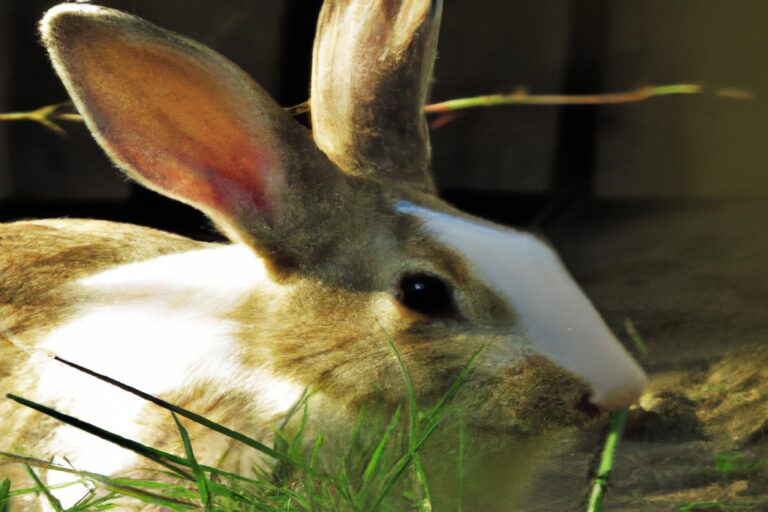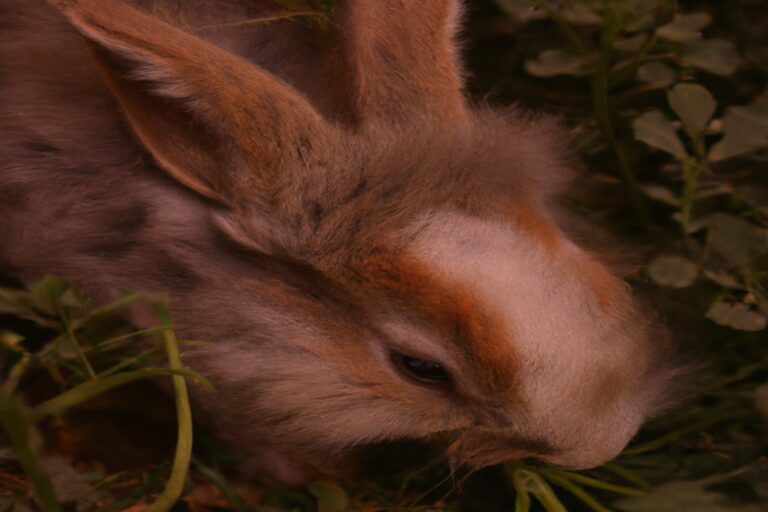Why Does My Rabbit Dig On Me? Unraveling the Mystery
Key Takeaways:
- Rabbits dig on you to mark their territory and show affection.
- D igging on you may be a sign of trust and relaxation in rabbits.
- Providing alternative digging options can help redirect your rabbit’s behavior.
- Seeking professional advice can help address any underlying issues causing excessive digging.
Are you puzzled by your bunny’s odd habit of digging on you?
You’re not alone! It’s no secret that rabbits have fascinating behaviors and instincts, and this digging behavior is no exception.
In this article, we’ll delve into the quirky world of rabbit behavior and explore why your furry friend might be showing this peculiar behavior towards you.
From their natural instincts to their need for comfort and trust, we’ll uncover the possible reasons behind your rabbit’s digging frenzy.
Plus, we’ll provide some practical tips on how to manage and redirect this behavior effectively.
Get ready to dig deeper into your rabbit’s mind!
| Reasons | Explanation |
|---|---|
| Rabbit’s Natural Instinct | Rabbits are natural diggers and burrowers. Digging is their way of exploring and feeling secure. It’s in their DNA. |
| Claiming Territory | Rabbits dig to mark their territory. By digging on you, they are leaving their scent and claiming you as part of their space. |
| Seeking Attention | Rabbits are social animals and dig for attention. By digging on you, they may be trying to get your attention or initiate playtime. |
| Escape Route | In some cases, rabbits may dig on you as an attempt to escape from a perceived threat or to find a way out of an uncomfortable situation. |
| Uncomfortable Environment | If the rabbit is constantly digging on you, it could be a sign that it is uncomfortable with its living conditions. Ensure that the enclosure is spacious, comfortable, and meets their needs. |
| Boredom or Lack of Stimulation | Rabbits may dig on you out of boredom or lack of mental and physical stimulation. Provide them with plenty of toys, tunnels, and interactive activities to keep them engaged. |
Understanding Rabbit Behavior and Instincts
Rabbits have specific behaviors and instincts that contribute to their overall behavior.
The Natural Instinct to Dig
Rabbits have a natural instinct to dig, which is rooted in their wild ancestry.
Digging helps them create burrows for protection and shelter.
They also dig to uncover food sources and broaden their territory.
This behavior can be seen even in domesticated rabbits.
Providing them with appropriate outlets for digging, such as digging boxes or tunnels, can satisfy this instinct and prevent them from digging on furniture or you.
Importance of Burrows in the Wild
Burrows play a vital role in the wild.
They provide shelter and safety for various species, including rabbits.
Burrows offer protection from predators, extreme weather, and provide a place for the animals to raise their young.
These underground tunnels also help regulate temperature and humidity, creating a favorable environment for survival.
Additionally, burrows serve as storage sites for food and offer a secure space for sleeping.
Overall, burrows are crucial to the survival and well-being of animals in the wild.
Rabbit Digging as a Sign of Comfort and Trust
Rabbit digging is a behavior that signifies comfort and trust.
Creating a Safe Space
Creating a safe space for your rabbit is essential.
Here are a few tips to help you achieve this:
- Provide a comfortable enclosure: Make sure your rabbit has a spacious and secure area to roam around and explore. A cage should be large enough for your rabbit to stretch out and should have solid walls to prevent any potential injuries.
- Create a hiding spot: Rabbits feel safest when they have a place to retreat to when they’re feeling overwhelmed. Provide a cozy hiding spot, such as a cardboard box with a doorway cut out, where your rabbit can relax and feel secure.
- Avoid loud noises and sudden movements: Rabbits are sensitive animals, and loud noises or sudden movements can frighten them. Keep the environment calm and peaceful to help your rabbit feel safe.
- Use positive reinforcement: Build trust and confidence with your rabbit by using positive reinforcement techniques. Reward good behavior with treats or praise to create a positive association and make your rabbit feel secure.
Remember, creating a safe space for your rabbit is essential for their well-being and happiness.
Take the time to understand their needs and provide them with a secure and comfortable environment.
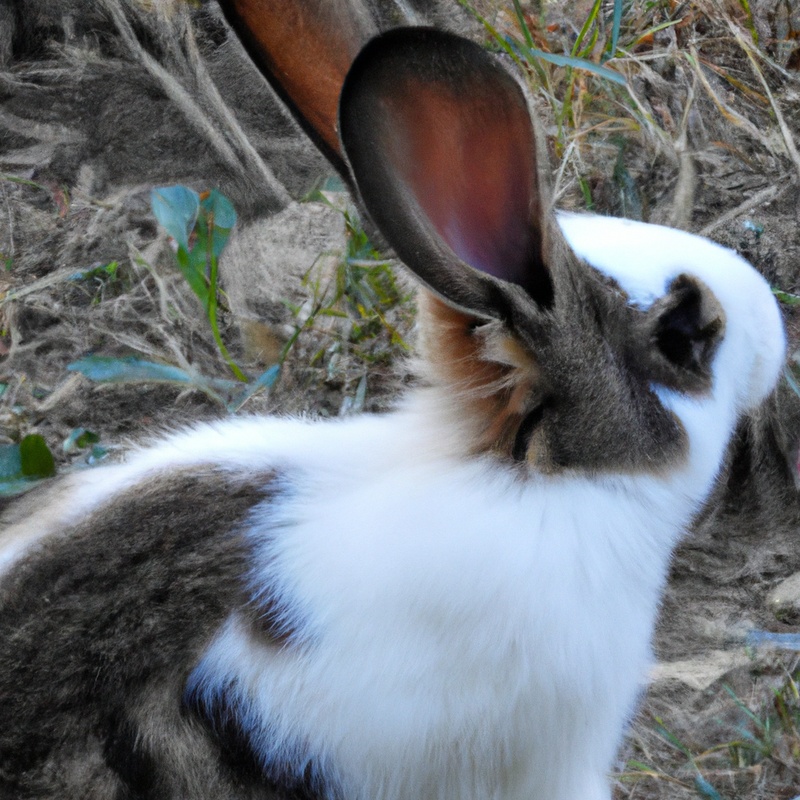
Seeking Physical Contact
Rabbits seek physical contact as a way to bond with their owners and show affection. They may nudge you with their nose, rub against your legs, or even jump onto your lap.
Seeking physical contact is a sign that your rabbit trusts you and feels safe in your presence.
It’s important to reciprocate their affection by gently petting and interacting with them. Building a strong bond through physical contact will strengthen your relationship with your rabbit.
Displaying Affection and Bonding
Displaying Affection and Bonding Rabbits display affection and bonding in various ways. They may nudge you with their noses, rub their chin on you, or even groom you by licking or nibbling.
These actions show that your rabbit feels comfortable and trusts you.
When they hop onto your lap or sit next to you, it’s another sign of their affection. Spending quality time together, such as petting and playing, can strengthen the bond between you and your rabbit.
Remember, each rabbit has their own unique ways of expressing love, so pay attention to their cues and enjoy the special moments of connection.
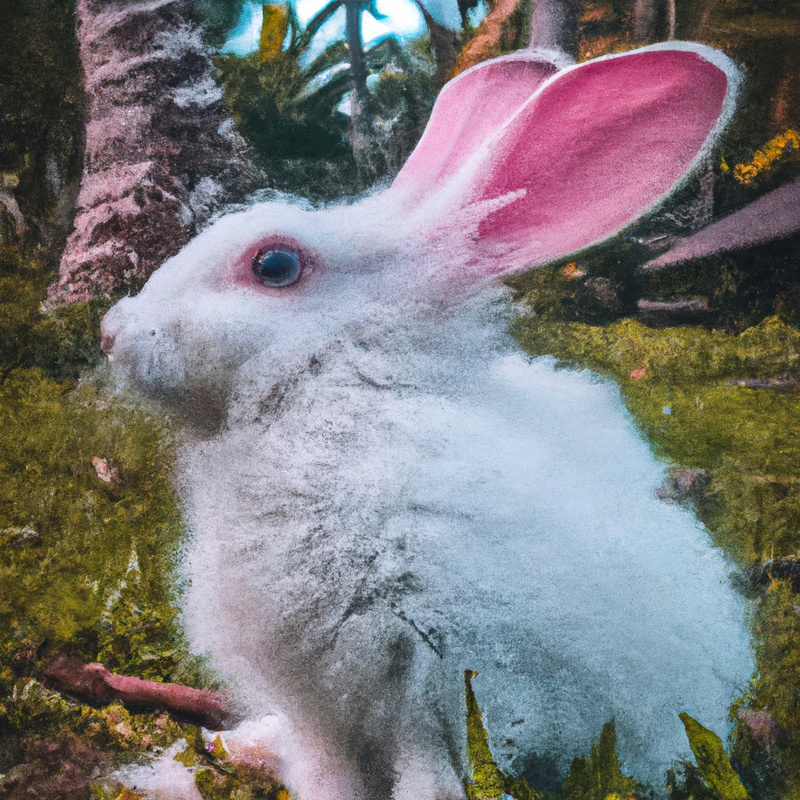
Potential Reasons for Rabbit Digging on You
Rabbits may dig on you for various reasons, such as seeking attention and interaction, marking their territory, or exploring and searching for hidden treats.
Seeking Attention and Interaction
When your rabbit digs on you, it could be a sign that they are seeking attention and interaction. Rabbits are social animals and they enjoy spending time with their owners.
By digging on you, they might be trying to get your attention and initiate play or contact.
It’s their way of saying, “Hey, pay attention to me!” Interacting with your rabbit through gentle petting and playtime can fulfill their need for attention and reduce their desire to dig on you. Remember to provide plenty of toys and activities to keep them stimulated and engaged.
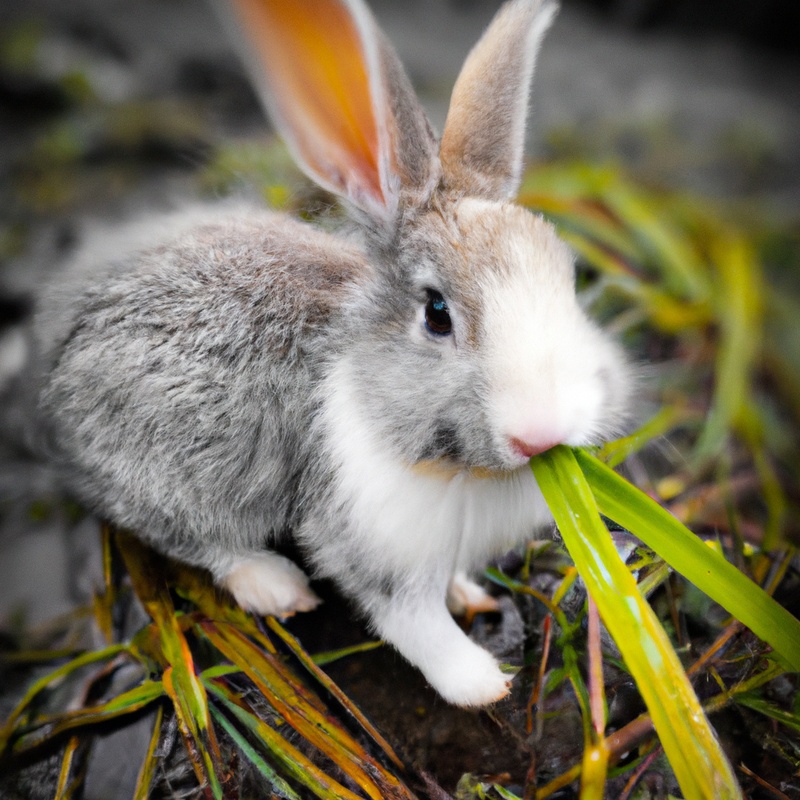
Marking Territory
Rabbits have a natural instinct to mark their territory. When they dig on you, it’s their way of claiming you as part of their space.
This behavior is more common in rabbits that are not yet neutered or spayed, as their hormones drive their territorial instincts.
Providing your rabbit with ample space and opportunities to explore and mark their territory can help prevent them from digging on you. Additionally, ensuring your rabbit receives regular exercise and mental stimulation can also reduce this behavior.
Exploring or Searching for Hidden Treats
Rabbits may dig on you to explore or search for hidden treats.
They have a natural instinct to forage for food, and sometimes they may think that you have something tasty hidden on your body.
This behavior is similar to how rabbits would search for food in their natural environment.
It’s their way of finding something delicious to munch on, and it can be quite amusing to watch.
Just make sure to offer them some bunny-safe treats so they don’t end up nibbling on something they shouldn’t!
Tips for Managing Rabbit Digging Behavior
Here are some tips to manage your rabbit’s digging behavior.
Providing Appropriate Digging Materials
One way to address your rabbit’s digging behavior is by providing appropriate digging materials.
Here are some options:
- Digging boxes or bins filled with safe materials like hay, shredded paper, or straw.
- Burrowing toys designed for rabbits, such as tunnels or tunnels made out of cardboard boxes.
- Burying treats or toys in a dedicated digging area to encourage your rabbit to dig there instead of on you or your furniture.
- Outdoor supervised playtime in a contained area with soft soil or sand for your rabbit to dig in.
- Adding plenty of enrichment activities, such as foraging toys and puzzle feeders, to keep your rabbit mentally stimulated.
By offering these alternatives, you can redirect your rabbit’s natural digging instincts and provide them with appropriate outlets for their behavior.
Establishing Boundaries and Training
Establishing boundaries and training is essential when it comes to managing your rabbit’s behavior.
Here are some tips to help you with this process:
- Set clear boundaries: Show your rabbit what areas are off-limits by using barriers or baby gates. This will help prevent them from digging in unwanted places.
- Provide a designated digging area: Rabbits have a natural instinct to dig, so give them a place where they can indulge in this behavior. Fill a shallow box with hay or soft soil for them to dig in.
- Use positive reinforcement: Reward your rabbit with treats or praise when they exhibit desirable behavior, such as using their designated digging area. This will encourage them to continue behaving appropriately.
- Redirect their attention: If you catch your rabbit digging in a forbidden area, calmly redirect their attention to their designated digging spot. Gently guide them towards it and offer positive reinforcement when they use it.
- Supervise and interact: Spend time with your rabbit during their playtime, interacting with them and providing mental stimulation. This will help reduce their need to dig excessively.
Remember, consistency is key when training your rabbit.
By implementing these strategies and being patient, you can help them understand the boundaries and reduce their digging behavior.
Ensuring Sufficient Exercise and Enrichment
One important aspect of managing rabbit digging behavior is ensuring they receive sufficient exercise and enrichment.
Rabbits are naturally active animals and need plenty of physical activity to keep them happy and healthy.
Provide them with ample space to run and play, both indoors and outdoors if possible.
Interactive toys, tunnels, and hiding places can also help to stimulate their minds and prevent boredom.
Regular playtime with your rabbit, such as supervised exploration in a safe area, can also provide them with the exercise and mental stimulation they need.
Frequently Asked Questions about Rabbit Digging Behavior
Why does my rabbit dig on my clothes?
Rabbits dig on clothes because it’s a natural behavior for them.
Your clothes might have a scent that they find interesting or comforting.
They might also be trying to mark their territory by leaving their scent on your clothes.
Providing alternative digging areas, like a hay-filled box or digging toys, can help redirect their behavior.
Ensuring they have enough mental and physical stimulation can also prevent excessive digging on clothes.
Is it normal for my rabbit to dig on me during playtime?
Yes, it is normal for rabbits to dig on you during playtime. Digging is a natural behavior for rabbits, and they may do it as a way to explore, mark their territory, or simply because it’s fun for them.
It’s their way of expressing their natural instincts.
If you don’t appreciate being dug on, you can redirect their behavior by providing them with appropriate digging areas, such as a designated digging box or a shallow sandbox filled with safe materials like shredded paper or straw.
How can I redirect my rabbit’s digging behavior to appropriate areas?
You can redirect your rabbit’s digging behavior to appropriate areas by providing them with a designated digging space. This can be a small box filled with soil or shredded paper where they are free to dig to their heart’s content.
Make sure to place the digging box near their primary living area to encourage them to use it.
Additionally, you can provide alternative activities and toys to keep them engaged and distract them from digging in inappropriate areas.
Final Verdict
Understanding why rabbits dig on their human companions requires a deeper understanding of their natural instincts and behavior. While the act of digging is rooted in their need for comfort, trust, and their natural instincts, there are various reasons why rabbits may dig on you, such as seeking attention, marking territory, or exploring for hidden treats.
Managing rabbit digging behavior can be accomplished by providing appropriate digging materials, establishing boundaries and training, and ensuring sufficient exercise and enrichment.
By applying these tips, you can redirect your rabbit’s digging behavior to appropriate areas and foster a stronger bond with your furry friend.

